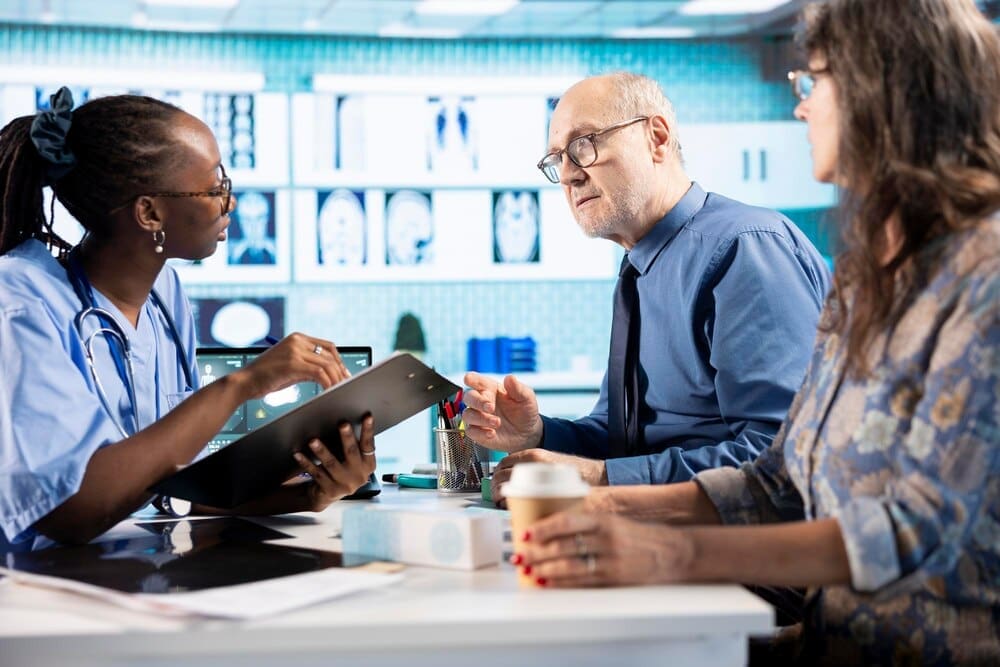Receiving a serious medical diagnosis is a life-altering event that can trigger a cascade of fear, confusion, and uncertainty for any individual and their family. For residents of Miami, this deeply personal challenge unfolds within a vibrant, complex, and culturally diverse landscape that presents both unique support systems and specific hurdles. Navigating the healthcare system, managing the emotional toll, and building a network of support in a city like Miami requires a proactive strategy that acknowledges its unique social fabric, from language barriers to the powerful role of family, ultimately empowering patients to find resilience and take control of their health journey.
The First Step: Processing the Diagnosis
The moments and days following a diagnosis are often a blur. The initial shock can feel overwhelming, making it difficult to process complex medical information. It is crucial to give yourself permission to feel the full range of emotions, whether it’s anger, denial, sadness, or fear. These are normal and valid reactions to life-changing news.
One of the most important first steps is to ensure you fully understand your diagnosis. Do not hesitate to ask your doctor to repeat information or explain it in simpler terms. Writing down questions before your appointments can help you stay focused and ensure you get the answers you need. Consider bringing a trusted family member or friend to act as a second set of ears and a note-taker.
Seeking a second opinion is a standard and wise practice in medicine, not a sign of distrust in your current doctor. Major medical centers in the Miami area, such as the University of Miami Health System (UHealth), Baptist Health South Florida, and Jackson Health System, have specialists who can provide another perspective. A second opinion can confirm a diagnosis, offer alternative treatment options, and provide peace of mind.
Building Your Miami Healthcare Team
Successfully navigating your treatment involves assembling a dedicated healthcare team. This team extends beyond your primary specialist, such as an oncologist or cardiologist. Your primary care physician (PCP) remains a vital hub, coordinating care between different specialists and managing your overall health.
In a sprawling metropolis like Miami-Dade County, finding the right specialists can feel daunting. Start by asking your PCP for referrals. You can also check with your insurance provider for a list of in-network doctors to manage costs. Patient reviews and hospital affiliations can provide further insight into a doctor’s practice and expertise.
Remember that you are the most important member of your healthcare team. Becoming an active participant in your care is a powerful form of resilience. This means keeping organized records of your test results, medications, and appointment summaries. A simple binder or a digital folder can be an indispensable tool for managing your medical journey.
The Miami Context: Culture, Language, and Family
Miami’s multicultural environment is one of its greatest strengths, but it can also introduce unique complexities into a healthcare journey. Effectively navigating this landscape means being aware of these cultural dynamics.
Language and Communication
With a large Spanish-speaking population, language can be a significant barrier to effective healthcare. While many providers in Miami are bilingual, you have the right to a professional medical interpreter if you or your family members are not comfortable communicating in English. Hospitals are legally required to provide interpretation services free of charge. Relying on a family member, especially a child, to translate can lead to errors and place undue emotional stress on them.
The Power of Familismo
In many Hispanic and other collectivist cultures prevalent in Miami, the concept of familismo—a strong emphasis on family—is central. Family members often play an integral role in healthcare decisions and daily support. This can be an incredible source of strength, providing emotional, logistical, and spiritual comfort.
However, it can also create challenges. It is important to establish clear boundaries regarding who is part of your core decision-making circle and how much information you are comfortable sharing. Openly communicate your needs and preferences to your loved ones to ensure their support is helpful rather than overwhelming.
Fostering Mental and Emotional Resilience
A medical diagnosis affects more than just your physical body; it takes a significant toll on your mental and emotional well-being. Cultivating resilience is an active process of adapting in the face of adversity.
Professional Mental Health Support
Seeking help from a mental health professional is a sign of strength. Therapists, psychologists, or counselors who specialize in health psychology or chronic illness can provide invaluable tools for coping with anxiety, depression, and the stress of treatment. Cognitive Behavioral Therapy (CBT), for example, is an evidence-based approach that helps patients reframe negative thought patterns and develop effective coping strategies.
Many of Miami’s major hospitals have psychosocial support services or can refer you to community-based mental health providers. Don’t hesitate to ask a doctor or a hospital social worker for a referral.
The Strength of Support Groups
Connecting with others who are going through a similar experience can be profoundly healing. Support groups, whether in-person or virtual, create a safe space to share fears, exchange practical tips, and realize you are not alone. National organizations like the American Cancer Society, the American Heart Association, and the National Alliance on Mental Illness (NAMI) have local Miami chapters that often facilitate these groups.
Mindfulness and Stress Reduction
Simple, daily practices can have a major impact on your ability to manage stress. Mindfulness meditation, deep breathing exercises, and gentle yoga can help calm the nervous system and ground you in the present moment. Miami’s natural beauty offers a unique advantage; a quiet walk on the beach, sitting in a park like Matheson Hammock, or visiting a botanical garden can be restorative for the mind and spirit.
Accessing Practical Support Systems
Beyond medical and emotional care, a diagnosis brings a host of practical challenges, from navigating insurance to managing finances and transportation.
Hospital and Community Resources
Hospitals in Miami are staffed with professionals dedicated to helping you with these logistical hurdles. Patient navigators are trained to guide you through the complexities of the healthcare system. Social workers can connect you with community resources, transportation services, and financial assistance programs. Financial counselors can help you understand your insurance coverage and explore options for managing medical bills.
Numerous non-profit organizations in South Florida are dedicated to helping patients and their families. Organizations may offer services ranging from meal delivery to temporary housing for those traveling for treatment. Researching local non-profits related to your specific condition can unlock a wealth of support.
In conclusion, facing a medical diagnosis in Miami is a journey that requires a multifaceted approach. By actively engaging with your medical team, embracing the unique cultural support systems of the community, and prioritizing your mental and emotional well-being, you can build profound resilience. While the path may be challenging, leveraging the rich network of professional, familial, and community resources available can empower you to navigate your diagnosis not just with strength, but with hope.













